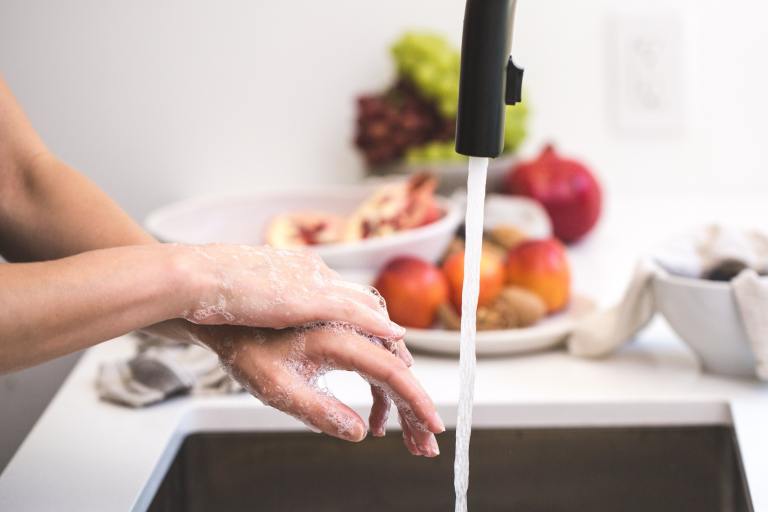6 Ways Hard Water Impacts Your Life

Have you ever heard of hard water or soft water? It is the difference between water that contains certain contaminants. Most water that comes from a municipal water supply is hard water. Are you using a municipal water supply? Did you know that the water you use every day in your home can have an impact on the way you live?
Keep reading to learn six ways hard water affects your daily life.
What is Hard Water?
Hard water is the term used for water that contains dissolved compounds of calcium and magnesium. It was first coined that term by early settlers in the Americas. They noticed some water was “hard to wash clothes in” due to the soap not lathering correctly, but rather building up a curdy substance.
Hard water is most often measured in grains per gallon. The degree of hardness standard is:
- Soft (Less than 1.0 grains/gallon)
- Slightly Hard (1.0 to 3.5 grains/gallon)
- Moderately Hard (3.5 to 7.5 grains/gallon)
- Hard (7.5 to 10.5 grains/gallon)
- Very Hard (10.5 and Above grains/gallon)
This standard was developed by the American Society of Agriculture Engineers (S-339) and the Water Quality Association (WQA).
What is Soft Water?
Soft water is the opposite of hard water. It is water that has no dissolved compounds of calcium and magnesium. While the softness can often feel “slick” on the skin to people who are used to hard water, it is in reality, quality water. There are many benefits of soft water that will be covered in this article.
There are many myths of soft water such as, “Soft water doesn’t remove soap from your skin when you wash” or “Soft water is full of salt which causes a bad taste and dries out your skin” statements like these are not factual, which you will learn as we explore hard water in this article.
Is Hard Water Bad?
Most people who use municipal water experience some amount of hardness, and therefore, many do not notice the effects of hard water because for them it is normal. In reality, anytime hard water is used inside the home, it is most often producing negative effects. Below are 6 categories that hard water negatively impacts on a day-to-day basis, you might be surprised to see what is said.
#1. Effects of Hard Water on Skin and Hair
Do you experience dry hair that doesn’t feel silky and full like it used to? Or does your skin and scalp seem dry and itch? Many would notice this problem and assume they need to use more conditioner for their hair or more lotion for their skin. And while, at times, these are very necessary, did you know that a contributing factor is the water you use?
This is where soft water vs. hard water comes into play. When people first try soft water, the initial response is often something like “the soap isn’t coming off, does soft water remove the soap?” This is because they are not used to the smooth and slick feeling that soft water provides over hard water. But I’ll let you in on a secret – hard water doesn’t remove soap from your body.
That’s right! Even though it feels like the soap is coming off because of the resistant-feeling one gets when trying to wash away soap, in reality, it is forming a layer of film on top of the skin. Here’s why – hard water is filled with positively charged ions (calcium and magnesium) that react with the fatty acids found in soap, forming insoluble lime soaps, which do not clean effectively.
The result is a layer of buildup and limescale on your skin and hair. This is what can cause skin dryness and itchiness, and the film around your hair follicles reduces the silky hair feeling that we all love.
As you can now see, it’s not only important the quality of water that you put IN your body, but also the water you put ON your body.
#2. Effects of Hard Water on Appliances and Plumbing
The battle of soft water vs. hard water doesn’t stop at the health, comfort, and beauty of your body, but continues now to the ways hard water effects appliances and plumbing throughout your home.
The calcium and magnesium molecules in hard water cause scaling. This is true in pipes, faucets, and water-using appliances, such as dishwashers, clothes machines, and coffee makers. This scaling will often contribute to a loss in efficiency and appliance breakdowns. For example, layering on top of heating coils in coffee makers, or clogging holes and water passages in machines like dishwashers, and many more.
Hard water will start to layer scale in all plumbing it comes in contact with, and in a span of 10 years, that layering can build up and cause a loss in water flow and pressure. It is also common for hard water to clog the water ports inside shower heads and other water faucets. This causes reduced water pressure and flow in the shower or jetted tub.
A 2009 study commissioned by the Water Quality Research Foundation (WQRF) and conducted by the Battelle Memorial Institute found that shower heads performed well on soft water, but those running with hard water lost 75 percent of their flow rate in less than 18 months. When running hard water through faucets, the strainers on the faucets clogged within 19 days.
For people building a new home, starting out with soft water will protect and maintain your brand new plumbing and appliances.
#3. Effects of Hard Water on Hot Water (Tank and Tankless)
In the same study, mentioned above, they discovered that water heater units maintained their factory efficiency rating for as long as 15 years when using soft water. While the units’ efficiency would be cut as much as 48% when using hard water.
Scale buildup shortened the lifespan of the heating elements inside electric water heaters, and some tankless water heaters using hard water failed after just 1.6 years.
#4. Effects of Hard Water on Dishes, Porcelain, and Glass
Have you ever pulled a clear glass out of the dishwasher and it seemed to be covered in a white film that cannot be washed away? This is most often due to hard water. That white film is actually the glass being etched away, the detergent reacts with the hard water producing this result.
#5. Effects of Hard Water with Soaps and Detergents
As mentioned before, soap and detergents react negatively to hard water. Often instead of creating a rich and foamy lather (like it should), when used with hard water it forms a scum-like substance that is unpleasant and curdy. On the other hand, it is very easy to form a rich and foamy lather with soft water, and it requires much less soap.
When using hard water, one must use more soap and detergent to overcome the negative effects of the hard water. But when using soft water, the use of soaps and detergent is lowered in amount. Less becomes more.
#6. Effects of Hard Water on Clothing and Fabrics
Do colors tend to fade when you wash and dry your clothes? Do the ends fray and fabric seem to get worn out quickly? Hard water may be a contributing factor. The same molecules that damage your plumbing and appliances get washed into your clothing which is not good for the cloth and fabric. With soft water, colors and materials tend to last longer and brighter.
Like mentioned before, less detergent is needed when using soft water. In fact, a research study was conducted by Scientific Services S/D and concluded that in washing machines, softened water can reduce detergent use by 50% and save energy by making it possible to wash in cold (60ºF) rather than hot (100ºF) water. Cold water washes with softened water achieved the same or better results when it came to removing stains and whitening fabrics.
Soft Water + Less Detergent + Colder Temperature = Better Results
Want to learn even more about whole-home water purification in Knoxville and Nashville? Check out our Knoxville and Nashville Residents Guide to Water Purification.
You can also contact our team.
Ready to Take Control of Your Water Supply?
Don’t wait for water shortages or unreliable sources to disrupt your life. With our Rainwater Harvesting systems, you can enjoy a sustainable, reliable, and completely self-sufficient water solution tailored to your home’s needs.

